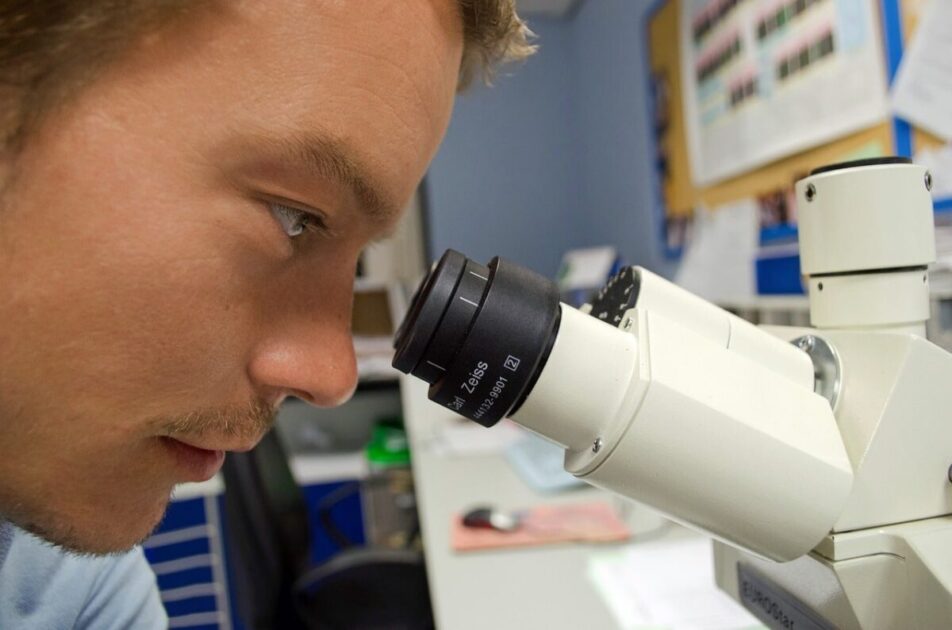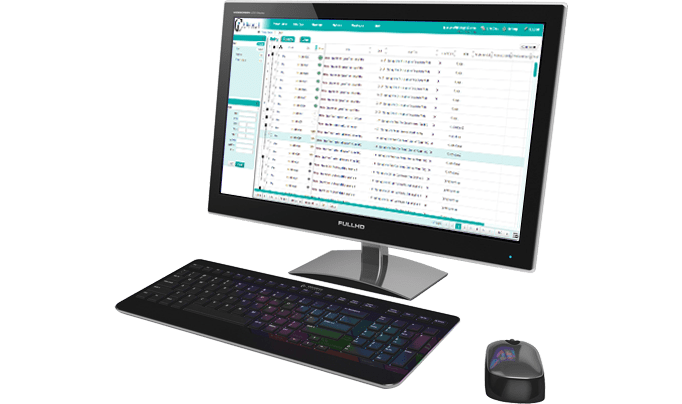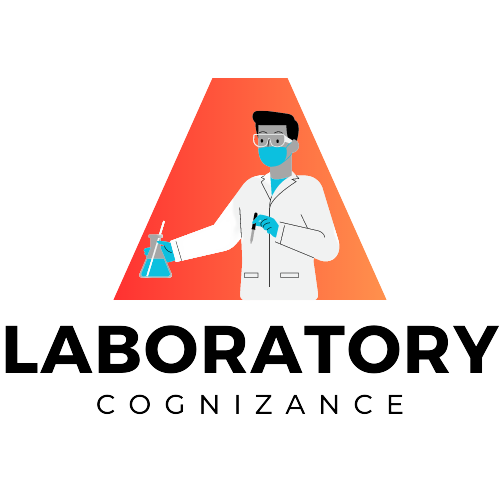Introduction
The laboratory field offers numerous opportunities for individuals passionate about scientific research and experimentation. To excel in this field, it is essential to create strategies that will help you advance your career. One crucial aspect is specializing in a specific area and continually learning and developing professionally. Additionally, gaining hands-on experience and demonstrating leadership skills are vital. Improving your communication and collaboration abilities, embracing technology, and networking with industry professionals are also key factors in paving the way for a successful career in the laboratory field.

The Importance of Specialization
Choosing a Specific Field
To advance your career in the laboratory field, one crucial strategy is to choose a specific area of specialization. This decision enables you to concentrate your efforts, delve into the subject matter, and develop expertise in a particular domain. When making this choice, consider your interests, strengths, and the areas of research that truly ignite your passion. By narrowing down your focus, you can position yourself as a valuable asset within your field, equipped with specialized knowledge and skills that set you apart.
Acquiring Advanced Skills and Knowledge
After selecting your specialization, acquiring advanced skills and knowledge in that specific area becomes crucial. Make the most of educational opportunities available to you, such as specialized courses, workshops, and certifications. Stay updated with the latest research and advancements by reading scientific journals and publications. Continuously expanding your expertise will enhance your credibility and open doors to exciting career prospects.
Building a Professional Network
Establishing a robust professional network is equally vital for advancing your career. Connect with professionals in your field, both within and outside your organization. Attend industry events, conferences, and seminars to meet experts and potential mentors. Engaging in conversations and collaborations with fellow professionals can provide valuable insights, guidance, and potential job opportunities.

Continuous Learning and Professional Development
Pursuing Higher Education
Continuing your education is a valuable strategy for advancing your career in the laboratory field. Consider pursuing advanced degrees, such as a Master’s or PhD, in your specialization. These degrees not only enhance your knowledge but also qualify you for higher-level positions and research opportunities. Additionally, they demonstrate your commitment to continuous learning and professional growth.
Engaging in Workshops and Conferences
You may keep up with the most recent research, technology, and market trends by taking part in seminars and conferences that are pertinent to your field. These gatherings give you the chance to network with professionals, share your own work, and even get recognition from the scientific community.
Staying Updated with Industry Trends
The laboratory field is constantly evolving, with new technologies, methodologies, and discoveries emerging regularly. To stay ahead in your career, it is crucial to stay updated with these industry trends. Subscribe to scientific publications, follow reputable websites and blogs, and join online communities relevant to your field. By staying informed, you can adapt to changes, incorporate new techniques, and position yourself as a knowledgeable professional.

Gaining Hands-on Experience
Seeking Opportunities for Internships and Apprenticeships
Gaining practical experience through internships and apprenticeships is invaluable for career advancement in the laboratory field. Seek out opportunities to work in reputable laboratories or research institutions. These experiences provide valuable opportunities to apply theoretical knowledge in real-world settings, develop essential laboratory skills, and establish a solid foundation for future career growth.
Volunteering for Research Projects
Volunteering for research projects, whether done internally at your company or with outside partners, offers the chance to gain practical experience and work on cutting-edge projects. You can enhance your skill set, contribute significantly to scientific discoveries, and build a strong professional reputation by taking part in research activities.
Collaborating with Industry Experts
To increase exposure and enhance your professional reputation, consider collaborating with industry experts. Take an active approach in seeking opportunities to participate in collaborative projects, both within your organization and with external partners. These collaborations provide valuable networking prospects and offer the chance to learn from experienced professionals, exchange ideas, and expand your horizons.

Demonstrating Leadership and Initiative
Taking on Challenging Projects
Accepting difficult undertakings shows ambition, problem-solving abilities, and the capacity to manage demanding work. It is essential to actively look for projects that fit with your area of expertise and stretch the limits of your knowledge & skills. By successfully completing these projects, you showcase your leadership potential and stand out as a capable and proactive laboratory professional.
Developing Strong Problem-Solving Skills
In the field of laboratory work, problem-solving skills hold great value and are highly regarded. Nurture your ability to effectively identify and address challenges. Develop critical thinking skills, analyze data meticulously, and propose innovative solutions. A strong problem-solving mindset combined with technical expertise will make you an asset to any laboratory setting.
Mentoring and Teaching Others
Mentoring and teaching others not only contribute to the growth of fellow professionals but also enhance your own skills and knowledge. Offer guidance and support to junior colleagues or aspiring laboratory professionals. Sharing your expertise not only helps others succeed but also establishes you as a respected figure in your field.

Effective Communication and Collaboration
Improving Verbal and Written Skills
Effective communication is essential for career advancement. Improve your verbal and written communication skills to convey your ideas, research findings, and project proposals clearly. Practice presenting your work in front of colleagues, seek feedback on your writing, and continuously refine your communication abilities. Strong communication skills enable you to effectively collaborate with colleagues, present your work at conferences, and contribute to scientific publications.
Actively Participating in Teamwork
Laboratory work often involves collaboration with multidisciplinary teams. Actively participate in team projects, contribute your expertise, and foster a cooperative work environment. By demonstrating your ability to work well with others and contribute to team goals, you enhance your professional reputation and create opportunities for career advancement.
Building Relationships with Colleagues and Superiors
Building positive relationships with colleagues and superiors is crucial for career advancement. Foster a supportive and collaborative work environment by engaging in open communication, offering assistance, and acknowledging the contributions of others. Cultivating strong relationships not only creates a conducive work environment but also opens doors to mentorship, promotions, and new career opportunities.

Embracing Technology and Automation
Familiarizing Yourself with Laboratory Software
In today’s digital age, laboratory work often involves the use of specialized software and tools. Familiarize yourself with laboratory software relevant to your field. Stay updated with the latest technological advancements and learn to leverage them to enhance your work efficiency and accuracy. By embracing technology, you position yourself as an adaptable and tech-savvy professional.
Adopting New Technologies
As new technologies emerge in the laboratory field, be open to adopting them in your work. Stay informed about advancements in laboratory equipment, automation, and data analysis tools. Embracing new technologies not only improves your efficiency but also demonstrates your willingness to adapt and stay at the forefront of scientific advancements.
Automating Repetitive Tasks
Laboratory work often involves repetitive tasks that can be automated. Identify opportunities to automate such tasks using robotics, software, or other automation tools. By automating repetitive processes, you can free up time for more complex and intellectually stimulating work, increasing your productivity and value within the laboratory.

Networking and Professional Associations
Joining Laboratory Associations and Societies
Joining laboratory associations and societies provides numerous benefits for career advancement. These organizations offer networking opportunities, professional development resources, and access to the latest research and industry updates. Engage actively in these associations, attend meetings and events, and take on leadership roles to expand your professional network and enhance your visibility within the field.
Attending Industry Conferences and Events
Industry conferences and events bring together professionals from various laboratory disciplines. Attend these gatherings to network with experts, exchange knowledge, and stay updated with the latest advancements. Make the most of these opportunities by actively engaging in discussions, presenting your own work, and seeking collaborations with professionals who share your interests.
Engaging in Online Communities and Forums
Online communities and forums focused on the laboratory field provide platforms for knowledge exchange and networking. Join relevant online communities, participate in discussions, and contribute valuable insights. These virtual networks offer opportunities to connect with professionals worldwide, share experiences, and seek guidance on various career-related matters.

Career Advancement Opportunities
Applying for Promotions and Higher Positions
As you accumulate experience and enhance your skills, contemplate applying for promotions or higher positions within your organization. Showcase your expertise, leadership abilities, and contributions to project success. Take initiative in pursuing career advancement opportunities and make your ambitions known to your superiors.
Seeking Opportunities for Project Leadership
Taking on project leadership roles showcases your ability to manage complex initiatives and lead a team to success. Seek opportunities to lead projects aligned with your specialization or areas of interest. Proactively contribute ideas, demonstrate strong organizational skills, and effectively coordinate team efforts. Project leadership experience enhances your profile and prepares you for higher-level positions.
Exploring Entrepreneurial Ventures
For those looking for non-traditional career paths, exploring entrepreneurial ventures within the laboratory field can be a viable option. Consider the pros and drawbacks of starting your own research-based company, laboratory, or consulting firm. Technical know-how, expertise in business, and networking abilities are necessary for entrepreneurial endeavours. This path offers the potential for autonomy, creativity, and significant career growth.

Conclusion
Advancing your career in the laboratory field requires a strategic approach focused on specialization, continuous learning, gaining hands-on experience, demonstrating leadership, effective communication, embracing technology, networking, and seizing career advancement opportunities. By following these strategies and actively investing in your professional growth, you can position yourself for success in the dynamic and rewarding field of laboratory work.

FAQs
Q 1: How important is specialization in the laboratory field?
A: In the laboratory industry, specialisation is crucial since it enables you to gain extensive expertise in a particular sector, making you a highly sought-after professional.
Q 2: What are some methods for getting actual hands-on knowledge in the lab?
A: An effective way to gain practical, hands-on experience in the lab is to actively look for possibilities for internships, apprenticeships, & volunteer in research projects. These opportunities offer beneficial exposure and the possibility to use academic knowledge in practical situations.
Q 3: How can effective communication contribute to career advancement?
A: Effective communication is essential for collaborating with colleagues, presenting research findings, and building professional relationships. Strong communication skills enhance your visibility and credibility within the laboratory field.
Q 4: What are the benefits of networking and joining professional associations?
A: Networking and joining professional associations provide opportunities for knowledge exchange, mentorship, and career development. These networks offer access to resources, industry updates, and potential job opportunities.
Q 5: What steps can I take for career advancement if I want to become a laboratory manager?
A: To advance towards a laboratory management role, focus on gaining leadership experience, improving your managerial skills, and seeking opportunities to lead projects or teams. Additionally, invest in professional development and expand your network within the laboratory management community.

